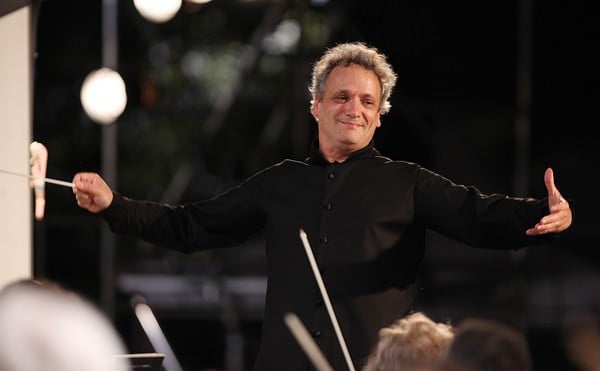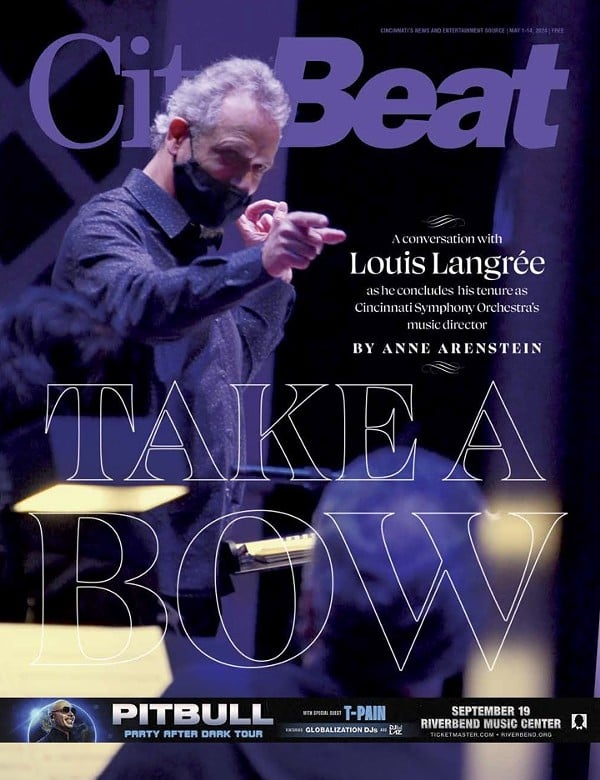|
Quick. Name a Jazz trombonist. Now name two. I can name but two besides Marc Fields. Hard bopper J.J. Johnson and also-bopping Delfeayo Marsalis are book-ended slide players, perhaps the world's best-known and most readily identifiable trombonists.
They are connected across generations by Johnson's transference of the sounds of Charlie Parker and Dizzy Gillespie to trombone, just as Marsalis — ever enamored of his trumpet- and sax-playing brothers Wynton and Branford — mimics Johnson by likewise transferring trumpet and saxophone technique and sound to the trombone, the aardvark of Jazz instrumentation.
Considering the trombone as a lead is unsettling. It's just not how we're musically and sonically socialized. Sure, the twice-bent brass instrument looks cool on the back line behind the band, sandwiched between, yep, a trumpet and a saxophone. But not out front with all that indecipherable note slurring.
Fields, an adjunct professor at UC's College-Conservatory of Music who has played with greats like Ray Charles and Kenny Garrett, isn't hung up on (Jazz) performance anxiety or trombone history. Neither is he having an instrument identity crisis on Salutaris Plates, his first solo CD as a leader. The album is jammed with jams, hard swinging with exquisite arrangements, heartfelt originals and three well-chosen covers, including Ornette Coleman's sprightly "The Blessing" and Billy Strayhorn's "Lotus Blossom," which Fields elegantly tethers to his "Love Song for Patricia."
Like any good leader, Fields doesn't bully, hog or overplay, and he stands out just as well when he tends to the intricate horn lines with trumpeter Mike "Shorty Bop" Wade (used in woefully short supply on this date) and altoists Brad Wagner and Rick Van Matre, who also doubles on flute.
Fields has assembled large, alternating ensembles sometimes comprising cello, viola, clarinet and French horn that, shaken and stirred, mix well and trade off with the traditional Jazz pastiche of drums, bass, saxophone and trumpet.
This works when it's supposed to, as on Dizzy's deceptively Baroque "Con Alma (Part One)" and its lightly swinging counterpart (part two), and especially on the drama of "Through Black and White Eyes," a clear album standout that sounds closer to the noir Jazz soundtracks that made Quincy Jones famous in the 1950s and 1960s. On this cut, Fields takes an early solo so precise and fluttering he sounds as though he's playing a valve trombone, an assumption made also of Johnson during his heyday. Altoist Van Matre marks his territory with an appropriately soaring and slightly frightening solo licking at the edges of out.
Beneath the whole thing, Jim Anderson, the thinking man's bassist and himself a brilliant arranger/leader, and monster-truck drummer Anthony Lee, obviously vying for Melvin Broach's octopus crown, propel the nearly 11-minute opus to a staggering exchange between bass, drums and the surprisingly muscular piano of Phil DeGreg, who pushes back with aplomb.
Elsewhere, DeGreg is too tentative, and his technique is too egghead for the level of intense playing on this album — for example, on "Kela," the album's opener. The post-Bop squawk of horns whizzing past one another like NASCAR finalists and the deft left hand/right hand interplay between Anderson and Lee demand piano work in between that's more self assured and moving than what DeGreg delivers. Otherwise, the cut works fine, and Lee presents a clinic on Be-Bop drumming doubling as a solo.
On "Since Before the Beginning," another album standout, Lee and percussionist Charles Schweitzer set the song to slinking and tiptoeing through the two lips of Fields and Van Matre (on flute). That is, before the song is deconstructed and rebuilt as a Chicago-flavored Free Jazz romp with strings and clarinet dotting the landscapes of Fields' — and the song's — building aggression. Finally, on its third incarnation, the song returns slightly to its origins, only this time with deeply orchestral flourishes.
"The Promise Keeper" isn't a standout or a throwaway and will probably be better served hot in live in performance. "Build Your Own," the final cut, belongs to Wade. The trumpeter burns through the piece like fire through flimsy fabric, and the other players keep pace at Wade's elbow, ripping the song into the aural equivalent of a blinding and bright shuffle that doesn't stop on a dime. Rather, it fades, a beautiful ending to Fields' remarkable leap into recorded leadership.
Now you know at least one Jazz trombonist.
MARC FIELDS performs Friday and Saturday at the Blue Wisp Jazz Club.





